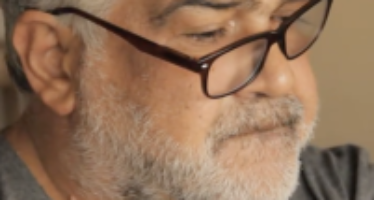Be your own media !
![]()
Why do you felt important to do such a blog?
As we said above we had felt for sometime that there was a lot of information that was not finding its way into American media, even the more alternative media outlets here. After the massacres of Kurdish civilians this July and the renewed fighting that followed attempts by foreign-backed jihadist groups to destroy the revolution, we felt it was even more important and more urgent to offer a different storyline for what was happening in Rojava. However when we wrote up a small piece and tried to get it distributed in a number of publications which we had hoped would be more sympathetic to the story we encountered indifference or disbelief. I mean no one had heard of a place called “Rojava,” much less of a revolution that was supposed to be happening there. So we started to translate articles and interviews that were already available from regional newspapers and news agencies and post them on the net. It was something of a shot in the dark, but our efforts have been slowly gaining momentum. I mean we are still a long way off from seriously challenging the dominant narratives but we hope to make a start, or at least to lay out a foundation that others could come and build on.
How has the blog been received in the USA ?
We have had a number of positive comments from some reporters working in the region, as well as some people active in blogosphere and on Twitter. Most, with a couple of exceptions, have been from Europe. Of course that is disappointing but it is still something. In general Europeans have a greater awareness of the Kurdish movement as it exists in Turkey, Iran and Syria, whereas Americans mostly know the Kurds through the invasion of Iraq and the American Government’s cooperation with the government in Erbil. Many Americans have no idea who Abdullah Öcalan is, or the relationship between what is happening in Syria and what is happening in Turkey. If they have heard of the PKK they most likely think of a “terrorist organization” – I mean this has been the government line here for almost two decades – that there are “good” Kurds and “bad” Kurds, or “our” Kurds and “those” Kurds – and there are very few people attempting to challenge this. Of course there are exceptions – Democracy Now! comes to mind – but even then the story is covered so infrequently that it is difficult for them to offer any real challenge to the dominant narrative.
On a more general terms, what is your idea about the autonomy model the Kurds in Rojava are proposing ?
For anyone who has followed the model as it has been discussed and struggled for in Turkey over the past decade, the events in Rojava are really exciting. That is to say while in Turkey although there have been attempts to put the model into practice together with the “free muncipality” movement – state interference and pressure has always made such attempts difficult. What we are seeing in Rojava is the first attempt to implement the model as it has been imagined – without the interference of higher authorities and on a larger scale. What we are seeing with the peoples’ parliaments and the new economic cooperatives are really quite exciting developments and should grab the attention of anyone who is interested in creating alternative models to the current system, not only in Rojava or the Middle East but here in the “West” as well.
Related Articles
PJAK: PRONTI ALLA PACE SE IRAN FA PASSI CONCRETI
![]()
Haci Ahmedi è il leader del PJAK (Partito della Libera Vita del Kurdistan). Lo abbiamo intervistato mentre si trovava a
‘Exiled at Home’: A Film Featuring Syrian Author Khaled Khalifa
![]()
We publish here an article by ArabLit. (http://arablit.org/) “Exiled at Home” is a short film by Lina Sinjab, centered around acclaimed Syrian
GERRY ADAMS E LA SINISTRA INDIPENDENTISTA
![]()
Belfast. Gerry Adams, in un comunicato, ha segnalato che è un “risultato degno di nota” il fatto, che circa 7000



